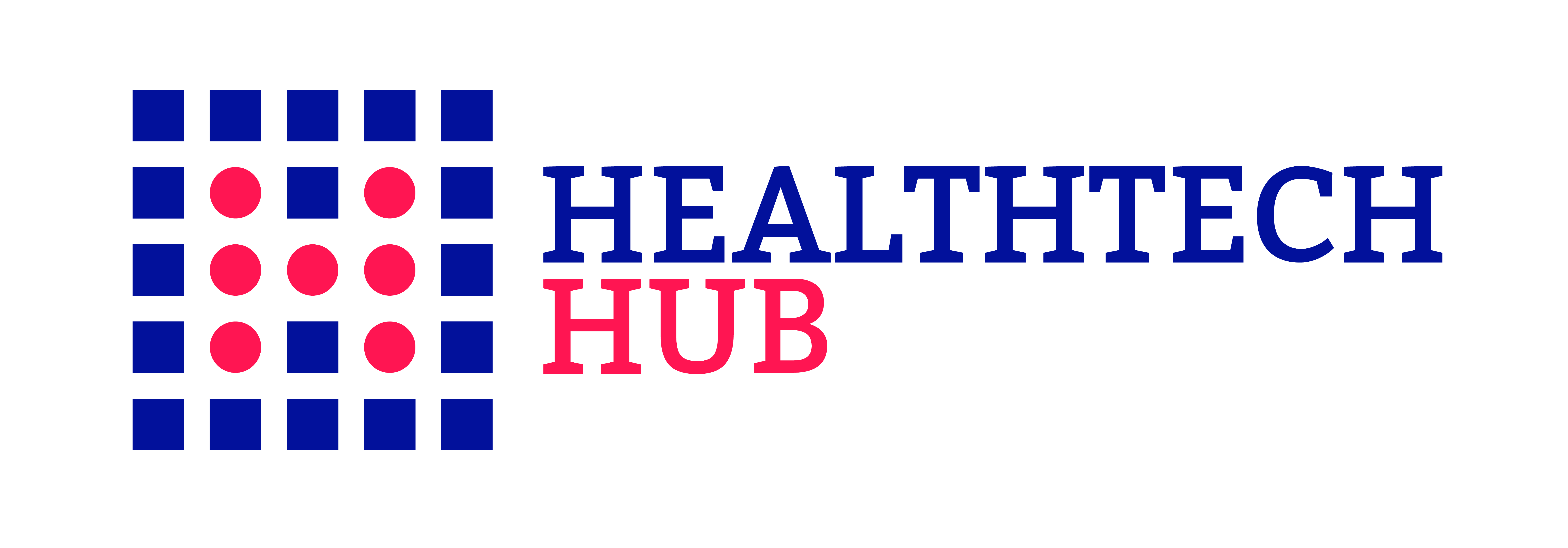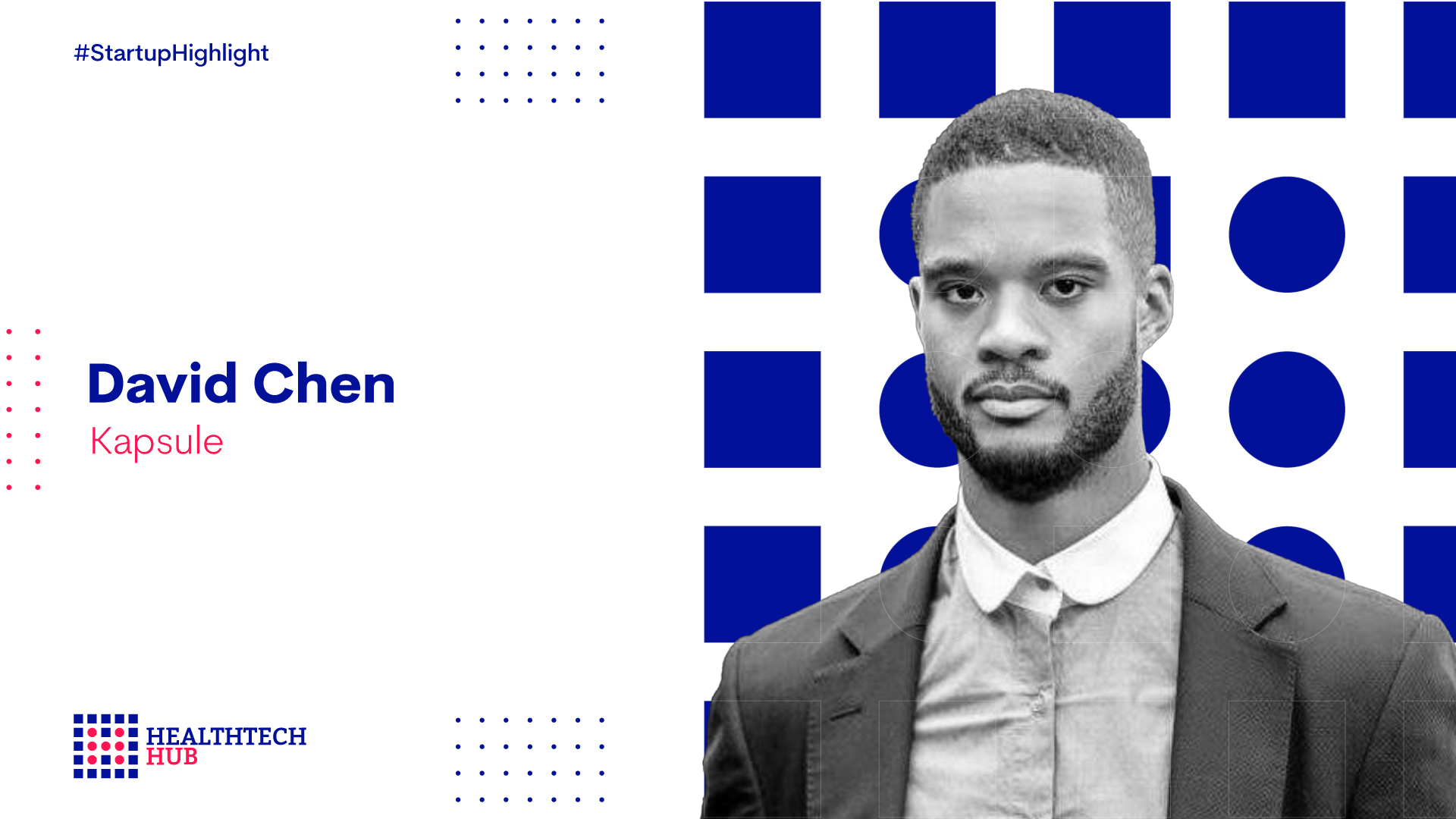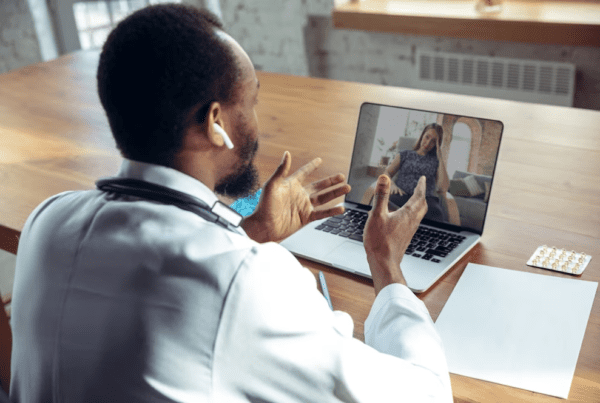Mr.Chen, good to have you today. Can you please tell us a bit about yourself?
Yes, so, firstly, thank you for inviting me. It’s a pleasure and honor to be here with The K Financial. I love the work you guys are doing.
To give a little bit of background about me, my name is David Chen; I’m the Co-founder and co-CEO of Kapsule alongside my childhood friend, who is my co-founder, Hannan.
With Kapsule, we are a mission-driven business looking to drive forward what we call the three As, Affordable, Accessible, and Authentic medicines for everyone across the World, and how we plan to do that is through transforming medicine Supply Chains.
Please share with us what healthcare problems Kapsule is solving and how you’re solving them.
As would be suggested by our mission. We are about medicine access, affordability, and authenticity, so to give you some context about the problem we are solving. There is a long and short version of the story, but the very short version is that my co-founder and I realized that there were things in the pharmaceutical market, specifically in Africa, that didn’t make any sense.
So we have a situation where people were spending disproportionally more money on products that were disproportionately lower quality due to some standard conditions. Some of our statistics are that up to five to six medicines in circulation were fake or substandard while costing up to 21 times the international reference price. So we were just like, this doesn’t make sense.
Clearly, the market is broken, and there must be a way to solve it using modern technology, especially considering that other markets worldwide have already solved this problem to a large extent. Um, so that’s a little history and context from us.
What’s your vision for Kapsule? And what role will you play in the future of Africa’s medical supply chain space?
Our vision for Kapsule is to build some of the foundational infrastructure to enable secure, reliable, and robust supply chains in Africa. One of the things that we noticed is essential to the future of Africa is to have the visibility of where products are going, who has them, and what conditions they have been maintained and making sure that counterfeiting or diverting of products is minimized.
In terms of what we want to build in the future, we really want to build a fundamental technology that enables many companies, applications, and solutions to be built on top of Kapsule, so that’s where we want to be. And we see the future of Africa is one where not only trade with external regions like Europe, the US, China, wherever but also doing Intra-Africa trade a lot more. By having better supply chains, we will also enable trade between African nations.
What are your thoughts on using AI in healthcare to move the paradigm toward delivering value? I mean, just how important is artificial intelligence in improving medical supply and logistics in Africa?
Artificial Intelligence is extremely important because it enables you to use computers to leverage information and make decisions and get insights that would be almost impossible to do without it or require a lot of resources, both human and financial resources, to do that. But also, what I think is very essential to highlight is that Artificial intelligence is a tool and technology as is every other tool in technology, and tools in themselves have no use unless you know how to use them. So I think the key is to take the knowledge of Artificial Intelligence that has been successfully used across many different industries, apply them to specific ground sphere, healthcare in our case or it could be in agriculture or another instance or finance in another, and use that tool to make things work a lot better. I think it creates a huge opportunity, especially in the African continent, because when you’re doing things using the latest technology, that means you require fewer resources which means you require less infrastructure. So there’s actually in my opinion, the opportunity for markets in Africa to leapfrog a lot of the current powers of the world or the western world or however you want to describe it because it’s not bound by legacy systems and legacy architectures, which makes the adoption of new technology difficult. I think it’s a very fertile ground to use new technology and drive things forward.
Q: In 2011, Nigeria had a child mortality rate of 124 deaths per 1000 births, whereas the UK had a child mortality rate of 5 deaths per 1000 births (The World Bank, 2013). The main causes for child mortality are attributed to neonatal causes (26.1%), malaria (24.1%), acute respiratory tract infection (20.1%), diarrhea (15.7%), measles (6.3%) and HIV (5.0%) (Federal Ministry of Health, 2010c). Many of these diseases could be prevented by the availability of vaccines or by being treated with available medicines (WHO, 2011). These figures are reflected in a study by the Nigerian Ministry of Health (2010b), which outlines how the supply of medicine is uncoordinated, unplanned and fragmented, resulting in redundant work, wastage of resources and an inability to optimize access to essential medicines for citizens. What factors are responsible for the inefficiencies in Africa’s poor logistics and supply space.
This is a very big problem and a very good question that needs a big answer. So I will try and give you an abbreviated version of my thoughts. To give you a bit of context to my background, I’ve been a front leader in the pharmaceutical space and, at several conferences, were speaking on the supply chain issues in the region. It became clear to me that every entity in the supply chain was doing what they were incentivized to do. I mean that everyone wants the maximum return with the least effort, energy or capital. So when we have that knowledge that people will always do what’s best for them with minimal effort, you add in some of the current contexts of the African markets. I think that explains why there have been some supply chain and logistics challenges, so to go into it a little more detail. When you have infrastructure gaps.
For instance, unreliable telecommunications or IT infrastructure or things like that. That makes the ability to keep data on what is happening very limited. When you have very limited data, you have very limited accountability and you have very limited enforcement ability. So it creates informational black holes where things are happening, but no one knows what, how, when, why, and so. Then in those black holes, everyone acts within their own interests, and what that leads to is the inefficiencies that we see on a macro scale, but when we actually dive into the detail on the supply chain whether it would be from a wholesaler to a pharmacy or a large wholesaler to a smaller wholesaler or a manufacturer to a wholesaler.
Each of those interactions has micro-incentives where if there’s an absence of data, people act in their own interests, which leads to problems that affect the whole chain. So I think overall from our analysis or from what we’ve been doing with our work at Kapsule, we’ve realized that the whole issue with the supply chain’s logistics space is a result of many small incremental issues that are a result of misalignment incentives that compound to create a big problem. So, in terms of thinking more optimistically and thinking more solution-oriented. We believe that focusing on those small incentives and fixing them piece by piece compounds benefit ovetime.
Q: At the policy level, in your opinion, what can African governments or institutions do to fix some of these inefficiencies? Or better still, what has or can Kapsule do to fix these inefficiencies?
Yeah, so that’s a very broad question. I think the government can do two major things: The first one is to use the powers that they have to make very clear and very robust regulations and mandates for activities to be to a certain standard and to a standard they can enforce those regulations and rules on supply chain actors and on the second side of this is to create an environment where you have innovators, companies or organizations which are incentivized to create means in which you can stay compliant but use fewer resources and that usually means through leveraging technology. If you have a government that is both favorable to new approaches, compliance, and regulations and then uses its ability to create those rules and enforce them. Combining the two creates a world where you have enough incentive to improve things.
And to the second part of your question, what can Kapsule do to fix those inefficiencies? That’s what I wake up every day to do, that’s what keeps me going, that’s what wakes me up at night and in the middle of the night, and that’s what I’m daydreaming about when I’m around friends. What we can do from my point of view as co-founder and co-CEO is to build better visibility and transparency, and accountability. When you can do that, people will do what they are incentivized to do again. It’s to do what is most valuable to themselves and with the right level of transparency and accountability, what’s right for everyone else as well. So using technology to drive that is my job as founder and Co-CEO.
You were selected among the top 30 health tech startups to incubate at the Norrsken HealthTech hub in Rwanda in partnership with Novartis. How important has this been to you in executing your mandate and vision in Africa and beyond?
It’s incredibly important. Firstly, it’s a huge honor to be among the other HealthTech Hub startups and some of the other startups outside of the HealthTech Hub space. Earlier today, Hamza introduced me to many people in the space. I was blown away by some of the incredible work some people in that space are doing. I think what is really important and critical about this state of the art. Here in Rwanda, it’s very encouraging that it’s creating an ecosystem.
With an ecosystem it has compound benefits and compound interest, and each person who’s here doing something innovative, pushing the envelope, really trying to innovate in the space which is sitting next to someone who’s trying to do the same, creates an environment where ideas happen, information flows, and have a compounding benefit.
For us at Kapsule, it’s very important because we want to have a base in Africa that also has the right infrastructure around us in terms of the infrastructure to have right office spaces, the right internet connectivity, or reliable services that we can build around us, especially as we are very technology-driven business and this space is absolutely perfect.
In speaking with the rest of my team and my co-founders, we really said that the hub here, the Norrsken organization, has made it seem like the beginning of something special. I think we’ll only really see the true impact that this space has had in a few years when we see a number of companies that spring out of this space.
Health technology startups in Africa face many challenges; besides funding & Patent or Intellectual property rights, scaling is one of the biggest in the room. In your opinion, what role does the Norrsken HealthTech Hub play in mitigating these challenges?
Yeah, well, it plays a huge role. Not only on the practical aspects of providing the actual space, providing the resources, and the infrastructure for us to work and come up with ideas and network with others, but also this space itself is very aspirational. You can come to this Norrsken house, and I encourage anyone listening to this to come and visit and not be inspired. Everything about the place screams the future, it screams sustainability, everything you want to aspire to do and to be. I think you can talk about the practical support that this space is providing in terms of providing access to investors, providing training, networking, and all of those things.
But I think beyond that, what is really important not only for people in this space but also for everyone in the surrounding areas is that it raises ambition, expectation, and creates energy and zeal, which I think is very infectious. You’ll be inspired if you’re a child walking past these buildings. If you’re thinking about an idea and look at the space, you’re going to be inspired to take your idea to the next stage. And if you’re visiting from another country in Africa when you see this, you may think that we need something like this in my home, country, and town and then try and build something towards that. I think you have a practical impact, and also, you have a more philosophical or aspirational impact.
In what countries are you currently operational? Why these countries, and what countries do you plan to scale to?
So we are a classic 21st-century organization, and our entire team is quite distributed. So we have 3 of us based here in Kigali, I have some other teams based in London and some in South Africa, one in Nigeria, and one in Pakistan. So we have a global team. In terms of where our operation is, it’s very clientdependent. So, wherever our client wants to implement our technology to track products, that’s where we can go. So, at the moment, we primarily focus on Nigeria, but there are also plans to go to other African markets, which could be Ghana or Liberia and even some of the francophone countries as well.
What has your experience been so far operating in Rwanda?
I love it. I absolutely love it! I say it’s like Switzerland in Africa. I was actually speaking to one of my childhood friend who lives in Switzerland, and I keep telling him to come to Rwanda because everything you have the right level of infrastructure, everything is safe, everything works, and You have a certain amount of predictability about your day, but you also have all the buzz, all of the excitement that you get from being an African and be able to eat the right food and have the right weather. It’s like everything blended into one.
For now and in the future Rwanda is a place to be, and I can completely understand why the visit Rwanda campaign has happened because once you’ve come and seen it for yourself, you don’t want to leave. My sister, my mom, and my brother are all going to come and visit and when they do, I’m sure they will want to stay.
Any last remarks for those starting out in Health tech in Africa?
I would tell them two things. One is something that which maybe sound a little bit strange. The first one is to have delusional confidence. What I mean by delusional confidence is you have to see what is there before anyone else sees it. You have to believe that you’re the person to deliver on your vision that no one else can see, and if you are too pragmatic and too realistic, you will then look at the size of the challenges and think this is impossible for me to solve but like the old saying says; “when you want to eat an elephant, do it one bite at a time.”
It’s very much the same as doing any technology company or start-up across the world, especially in Africa, where you have challenges that are very unique to this time. The challenges are there; they are real, but you should not let them dampen your confidence. That’s why I say the delusional part is very key. You need to see and believe what no one else can see and believe.
Now, the second part is almost the opposite advice from the first piece of advice, which is that you need to be very pragmatic what I mean by pragmatic is that you look at resources that are available to you and look at everything that you have access to and think how can you use that most efficiently and effectively possible to get you the results you need.
You need to be very pragmatic and very defined in how you define goals and targets and milestones. Be very regimented in both your daily routine and also your way of measuring progress so that you can make sure that day by day you are moving in the right direction. So you have two almost conflicting sides. I advise that people balance. The delusional confidence that you’re going to do it regardless and then almost conversely that very pragmatic sort of almost pessimistic view that I need [Unclear] otherwise that big dream won’t happen, and if you somehow manage the two, I think that’s a perfect combination and a recipe for success.





